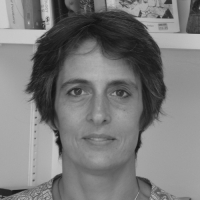The mail correspondence between Arabella Kurtz and J.M. Coetzee has been published in the Netherlands, and will soon be available in the UK and the US “The Good Story: Exchanges on truth, fiction and psychoanalytic psychotherapy”, Coetzee writes:
“The stories we tell about ourselves may not be true, but they are all we have.”
I am interested in our relations with these stories we tell about ourselves, stories that may or may not be true. Let me select three cases.
(a) I have a story about myself which I sincerely believe to be true, in fact which I believe to be the story of me, but which some ideal, omniscient, God-like observer who is entirely independent of me and to whose mind I have no access knows not to be true, or at least not to be the whole truth.
(b) I have a story I tell about myself, one in which I wholeheartedly believe but which certain well-placed observers (my parents, my spouse, my children) know to be flawed, probably self-serving, perhaps even to a degree delusional. (This is a not uncommon state of affairs.)
(c) I have a story about myself in the way that we all have stories about ourselves: I concede that it may not be true by the standards of (a) or even (b); nevertheless, it is “mine”, it is all I have, and therefore I give it my allegiance. “It’s all I have, it’s the best I can do.”
I take (c) to describe a common postmodern situation: there is no type (a) ideal observer who holds in his/her mind the true story of me, therefore let me negotiate some kind of life-narration for myself, one that is prudently enough worked out to take type (b) observers into account, yet that feels honest and sincere, even though I know at the back of my mind that there are interests at work – interests to which I am blind – which have almost certainly dictated that certain parts of “the” story – the full story, the type (a) story – should be occluded. I will not be able to put my finger on these occluded parts because “I” am engaged in hiding them from “myself”.
This is a fundamental question: how do we relate to the stories we tell about ourselves, and can we separate ourselves from the stories we have to tell about ourselves? Do the stories we tell about ourselves serve first and foremost, to put it a bit crudely, as advertisements for ourselves? What if this universe is a universe without justice? Can we accept an idea of truth that is not connected to our belief in justice? In other words, what if the truth reveals a fundamental lack of justice? Are we still interested in that truth?
